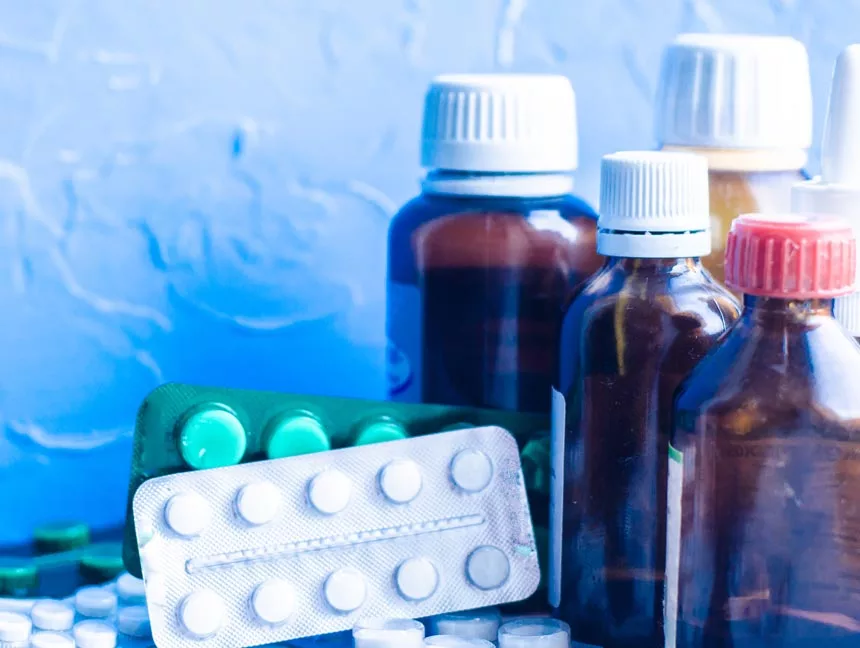Treating Codeine Dependence
Table of Contents
Codeine addiction recovery requires a number of important steps, but perhaps the most important one is making the choice toseek rehab for your substance use disorder. Without proper codeine addiction treatment, it can be almost impossible to overcome codeine dependence on your own.
Codeine is an opiate and a narcotic belonging to the same family of drugs as morphine, heroin, and oxycodone. It shows up in many OTC painkillers like Tylenol 3. Opiates are a family of drugs that are derived from the opium poppy. They became widely accepted as painkillers and eventually made their way to everyday use.
Unfortunately, the side effect of addiction has led to a widespread opiate epidemic across several areas of the United States. Since it is so easy to obtain, it serves as a gateway drug to other, harder drugs like heroin.
Its ease of accessibility also makes it a drug of choice for a certain age group since they can access codeine through their parents’ prescriptions. These combined elements make codeine a dangerous drug to deal with.
Despite this, codeine is still a very useful painkiller and is still offered to manage moderate pain today. Doctors have since adjusted their formulation to allow for more short-term treatment, but even so, it still has quite a reputation.
Before we can look at how codeine affects people’s lives, we need to examine how it is used.
What Is Codeine Used to Treat?

Codeine is an opioid used to relieve pain and also as a cough suppressant. It’s used as an ingredient in prescription medications, as well as over-the-counter cough and cold medicines. It is one of the most frequently supplied opioids to casual users. Codeine has also been used for pre-operative sedation for minor surgery where the patient can expect mild to moderate pain, and it is often used to treat post-operative pain or discomfort.
The practices of medical personnel have not helped to manage problematic codeine addiction rates around the US. Not only are illicit drug users tapping into lax prescribing practices, but multiple pharmacies go along with it, making it difficult to control the spread of opioid addiction. Over-the-counter medications like codeine need to be more controlled.
How is Codeine addictive?
Codeine is a helpful medication that can make a huge difference when applied to the right circumstances.
Unfortunately, many people wind up engaging in codeine misuse and abusing the substance instead. This problem of this drug addiction has seen massive growth in recent times. While codeine isn’t the same as illicit drugs, it can be abused and turn into a serious problem.
Codeine: The Narcotic
Codeine is a narcotic that acts on the central nervous system. It has a similar effect to morphine, which is a natural substance produced in the body as part of the pain response. The major reasons for the rise in substance use disorders as it relates to this substance has to do with how it affects the release of pleasure and motivation hormones in the brain.
Excessive codeine use can result in the brain releasing a flood of dopamine and endorphins. This is the bedrock of general drug abuse and how addiction to codeine can develop. Addiction treatment is crucial to helping anyone who has been prescribed codeine and is now faced with the fallout of that prescription.
Why do People Abuse Codeine?
Prescription opioids (especially over-the-counter medicines) are a heavily controlled substance precisely because of the risk of drug addiction and drug abuse inherent with the misuse of the substance. Codeine prescriptions are one of the most sought-after things by persons seeking to get a fix on the substance. Illegal prescription opioid sales have soared in the US recently. Obtaining codeine illegally has never been easier.
People abuse codeine because it causes euphoria when taken in high doses in addition to relaxation, relief for chronic pain, and drowsiness.
Substance use disorders are common in persons experiencing mental distress. Mental illnesses like depression and anxiety can be risk factors that cause people to self-medicate and develop a habit of drug addiction.
Being Careful With your Drug Usage
According to theNational Library of Medicine, patients should not take more of the drug than they are prescribed by a doctor. They must also not take it more often than prescribed or in a different way than prescribed. An addiction to codeine is remarkably easy to fall into if the drug is misused.
Sadly, people often abuse drugs like codeine because they believe they will not cause addiction. This is because of the misconception that any drug prescribed by a doctor is safe to use at any time.
Unfortunately, codeine does cause serious problems when it is abused, and those who become dependent on and addicted to this drug will require professional help. Codeine dependency can lead to erratic behaviors in their search for the substance – a situation termed addiction.
How Does Codeine Addiction Affect the Body?
Addiction to Codeine can have a multitude of adverse effects on the body. The truth is that a substance use disorder will always have negative impacts on the mind and body. Read on to learn how codeine can harm those addicted to it.
When taken in large doses, codeine can cause euphoria and sedation, as well as nausea and vomiting. In its pharmaceutical form, it is mixed with acetaminophen, which makes it more effective at treating pain. However, this also increases the likelihood of liver damage when taken at high doses.
The most common side effects caused by codeine include nausea and vomiting, drowsiness, constipation, confusion, itchiness, and dry mouth. The most serious effects that can be caused by codeine are respiratory depression (slowed breathing), hypoxia (deficiency of oxygen in the bloodstream), and, in the worst-case scenario, death.
What are the Withdrawal Symptoms of Codeine?
Withdrawal can be much like most other addictive substances. In a word, difficult. Once one has become addicted to a substance, the body will have developed a physical dependence on the substance, relying on its presence to operate at a baseline. What this effectively means is that once the body is deprived of the substance, it will start to experience adverse effects or withdrawal symptoms.
Codeine Withdrawal Effects
The effects of over-the-counter codeine use are similar to those produced by morphine. Therefore, the symptoms associated with withdrawing from codeine abuse are quite similar to those of morphine addiction. This can be attributed to the fact that they both have a similar chemical structure.
The main symptoms include a runny nose, watery eyes, itchy eyes, and sneezing. In addition to this, you may also experience goosebumps and yawning. Some clients have also stated that their codeine withdrawal included headaches alongside the above symptoms.
Other symptoms include cold sweats, irritability, depression, anxiety, fever, fatigue, nausea and vomiting, restlessness, abdominal cramps, and diarrhea.
Although one can withdraw from this drug without medical help there are chances that the symptoms will turn acute and may become life-threatening if proper medical care is not provided on time.
How to Treat Codeine Addiction

Addiction to an over-the-counter medication like codeine can be debilitating. For this reason, it is strongly encouraged by all health professionals that anyone struggling with the disorder seeks addiction treatment immediately. Many different codeine addiction treatment options can be found in codeine treatment centers around the country. Support and treatment advice can help individuals come to terms with their addiction.
Treatment for this disorder may require a handful of different programs and formal addiction treatment support for each individual, especially because addiction is an individualized disease. Treatment and retention outcomes for each of the following may vary depending on the individual and their psychological or emotional responses to treatment.
Medications for Treating Addiction
Medications are often used to treat opioid addiction. While a patient is in detox, these drugs can be used to minimize withdrawal symptoms and make the process of withdrawal less uncomfortable. During rehab, medications may be useful for curbing cravings, stabilizing patients, and treatingco-occurring mental disorders.
Methadone and buprenorphine are two of the most often used medications for treating opioid addiction in formal health care treatment. These drugs can be used to help patients manage withdrawal, or they can stabilize individuals while they learn to avoid relapse. A person may even stay on one of these medications for a year or longer.
Methadone and buprenorphine can both be abused to cause the same euphoria and other effects that codeine can, but when they are used as treatment medications, they are highly regulated so patients cannot abuse them (National Institute on Drug Abuse).
Outpatient Addiction Treatment Programs
These treatment programs are typical as a means of helping an individual wean themselves off illicit drug addiction as well as painkiller addiction involving codeine. An outpatient program offers a bit of freedom to the recovering person involved in substance use disorder treatment. They can retain their lives outside of the facility, and can even go to work, seeking treatment in the time that they have available.
Behavioral Therapies for Treating Addiction
Behavioral therapies are also necessary for almost every form of addiction treatment. These programs can help patients learn to refrain from relapses, even at difficult times. They can also help individuals learn the skills they will need to live their lives safely in recovery, including those having to do with recognizing their cravings, avoiding their triggers, and discussing their needs with others.
Cognitive-behavioral therapy is perhaps the most highly used treatment option for addiction (NIDA). The program helps patients relearn positive attitudes and actions that will help them steer clear of further substance abuse.
Contingency management is another often used treatment for codeine addiction. This therapeutic program can help determine if patients in outpatient care are refraining from codeine abuse with frequent drug tests. When the individual passes the test, they get a reward, either a monetary prize or an option to participate in a drawing.
Group therapy is also incredibly popular in codeine addiction treatment programs. This option asks patients to help one another recover and provides much-needed community interactions between recovering individuals.
Holistic Treatments

Non-evidence-based treatmentsare important to recovery as well. These can include a number of options, some of which may prove invaluable to certain patients. However, it is important to remember that all people recovering from opioid addiction must seek professional treatment in addition to any of these options. Even if users suggested alternative medicines, a professional should guide their holistic treatment.
This essentially refers to Holistic therapies and techniques. Holistic treatments are often available to those who seek codeine addiction help in rehab centers. These can include any type of non-evidence-based program, from yoga to Tai Chi to biofeedback therapy to art therapy. Some people find these options incredibly helpful, especially those who have trouble opening up in traditional treatment programs.
12-Step Programs
Some individuals are able to get the additional help they need from 12-step groups like Narcotics Anonymous or other types of support groups for their substance misuse treatment. Some even exist that offer help to people who prefer secular approaches to addiction recovery like SMART Recovery.
No matter what your situation, there is a treatment center that can offer you the exact options you require for safe,long-term sobrietyfrom codeine abuse and addiction. Though recovery may seem like a long way away, you can build yourself a new life with the help of treatment that will allow you to avoid returning to the abuse of this dangerous drug.
Codeine Addiction Treatment: Found Here
Addiction treatment is the most highly recommended course of action for anyone struggling with addiction to substances. A high quality treatment center is the place to seek it, with programs administered and guided by accredited medical professionals.
Call Find Addiction Rehabs today to speak with someone who can help. We’re always available to talk, and we’re happy to help you find a treatment center that will offer you the care you need. With nationwide options that accept nearly all forms of insurance, we are waiting to assist, so please give yourself a break and reach out now!

